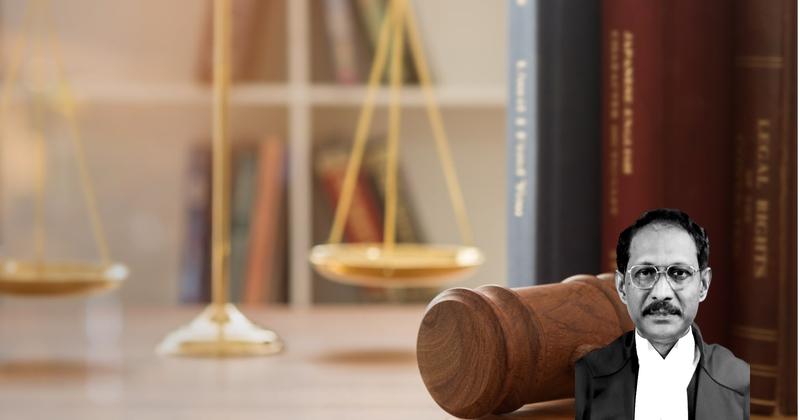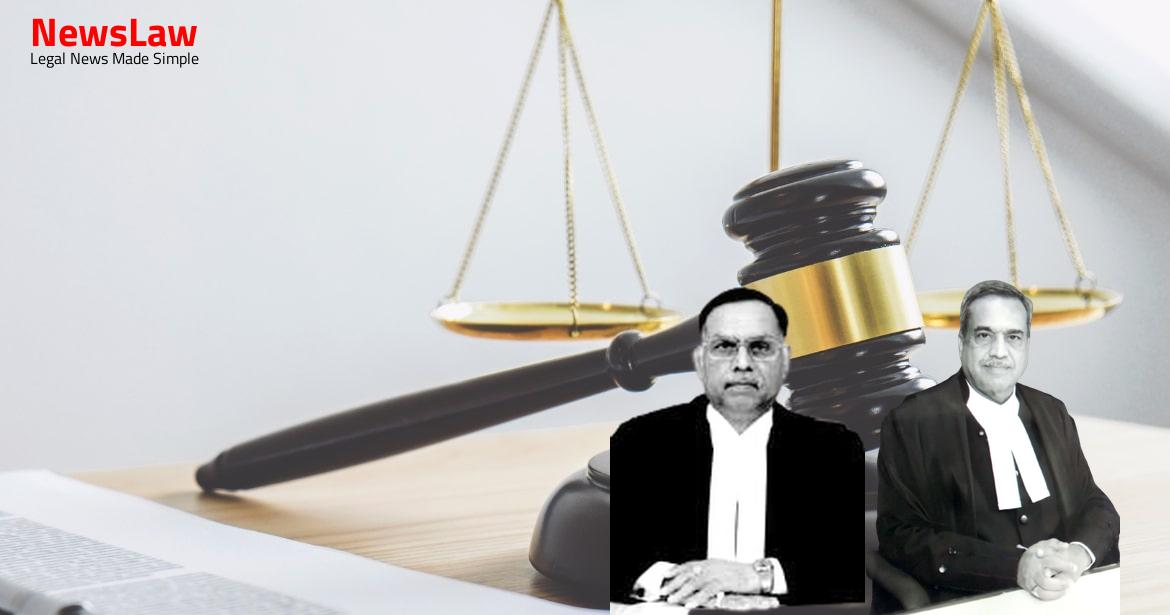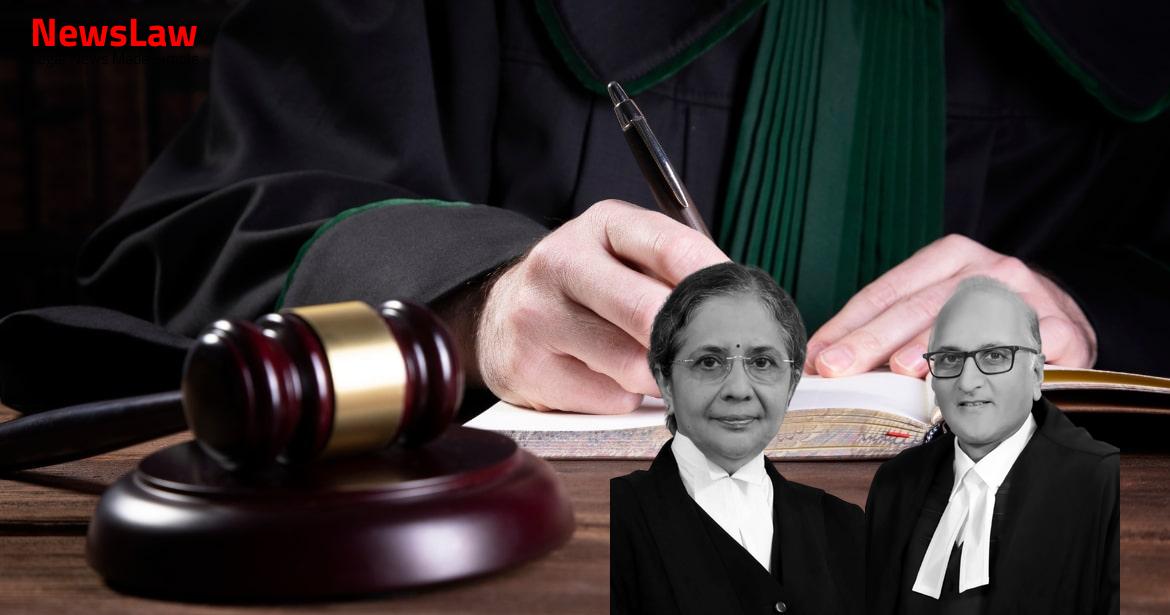Delve into the nuanced legal analysis provided by the court regarding the requirements for Environmental Clearance in the recent case. The court scrutinized the need for adherence to environmental norms and regulations, emphasizing the importance of implementing strict pollution control laws for sustainable development. Find out more about the legal intricacies of environmental clearances and compliance in this insightful summary.
Facts
- The appeal is against an order passed by the National Green Tribunal (NGT) in O.A No.287/2020 at New Delhi.
- The NGT held that establishments without prior Environmental Clearance (EC) cannot operate.
- The question of law is whether an establishment with CTE and CTO can be closed down pending issuance of EC, even if it does not cause pollution.
- Division Bench of High Court refused to interfere with the notification dated 13 October 2017
- The court held that the notification did not compromise with the need to preserve environmental purity
Also Read: Analysis of Financial Statements as Acknowledgment in Limitation Act Case
Analysis
- The Division Bench of Madras High Court made an error in staying the office memorandum based on observations from a different context.
- The notification of 7 July 2021 was in line with the valid 2017 notification, and the Expert Appraisal Committee recommended the grant of Terms of Reference for expanding the manufacturing unit.
- A Non-Governmental Organisation (NGO) filed an application seeking closure of units without Environmental Clearance (EC), stating the units were non-polluting and had ‘Zero Trade discharge’.
- Ex post facto EC should not normally be granted, but some relaxations may be allowed in compliance with regulations.
- The Authority has the power to amend or modify notifications if needed, and the units in question were found suitable for EC after scrutiny.
- A procedural lapse of not obtaining EC was the only issue against the units.
- The Appellants had applied for EC and the units were deemed to be operating sustainably with valid approvals.
- The Environmental Protection Act was enacted to address global environmental concerns since the 1960s, and the Air Pollution Control Act aimed to prevent air pollution.
- The Central Government issued a notification in 2017 allowing for ex post facto EC for projects commenced without prior EC under the EP Act.
- The Appellants operated in good faith based on their understanding that EC was not required for their units.
- The appeal was heard at length, and a decision was reserved along with an interim relief application.
- The Central Government may issue directions in writing to any person, officer or authority under the EP Act, and they are bound to comply with such directions.
- The Central Government has made the Environment (Protection) Rules, 1986 under the EP Act.
- The Central Government has the power to take measures to protect and improve the environment and prevent environmental pollution.
- The Central Government can issue notifications, orders, rules or bye-laws under the EP Act.
- SPCBs are bound by directions given by the CPCB or the State Government.
- Permission is required to set up and operate any factory or plant in an air pollution control area.
- Emission of air pollutants must not exceed standards set by the SPCB in air pollution control areas.
- The Air Pollution Act establishes CPCB and SPCBs to address air pollution.
- CPCB can take steps to improve air quality and prevent air pollution under the Air Pollution Act.
- SPCBs can plan programmes to prevent and control air pollution and set standards for emission of air pollutants.
- The Central Government can give directions to the CPCB under the Air Pollution Act.
- The need to comply with the requirement to obtain EC is non-negotiable.
- EC is granted based on the suitability of the site, existence of necessary facilities, and equipment for compliance with environmental norms.
- Strict enforcement of pollution laws is crucial for protecting future generations and ensuring sustainable development.
- Ex post facto environmental clearance is not prohibited by the 1986 Act.
- Closure of units for technical irregularity should be avoided if they do not cause pollution and comply with required norms.
- Granting ex post facto approval should be considered in exceptional circumstances and in line with environmental factors.
- Deviant industries should be penalized based on the ‘polluter pays’ principle and restoration costs may be recovered from them.
- Industrial operations should not be allowed to operate unchecked and degrade the environment.
- Granting ex post facto EC should adhere to all applicable Rules, Regulations, and Notifications.
- Ex post facto clearances should not be routinely granted but in special circumstances.
- The court should consider the impact of stopping operations before declining ex post facto clearances.
- NGT erred in law by directing units cannot function until compliance of statutory mandate
- Appellant did not submit final application for EC after public hearing
- Union of India’s counsel argued against NGT’s decision
Also Read: Landmark Legal Analysis in Conviction Appeal Case
Decision
- Electricity to be restored upon payment of charges, if any
- Final decision on EC application to be made within three weeks
- Appellants to take necessary actions within a week after decision
- Appellants allowed to operate the units
- If EC application is rejected due to contravention, electricity supply can be disconnected
- Operation of Pahwa Yamuna Nagar Unit and Apcolite Yamuna Nagar Unit not to be interfered with
- Union of India to inform Appellants of any further requirements within three working days
- Impugned order set aside for units operating under CTE/CTO with pending EC applications
- Decision on EC applications to be made by Respondent within one month
- Pending applications in the appeal are disposed of
Also Read: Analysis of Territorial Jurisdiction in Arbitration Transfer Petition
Case Title: PAHWA PLASTICS PVT LTD. Vs. DASTAK NGO (2022 INSC 345)
Case Number: C.A. No.-004795 / 2021



